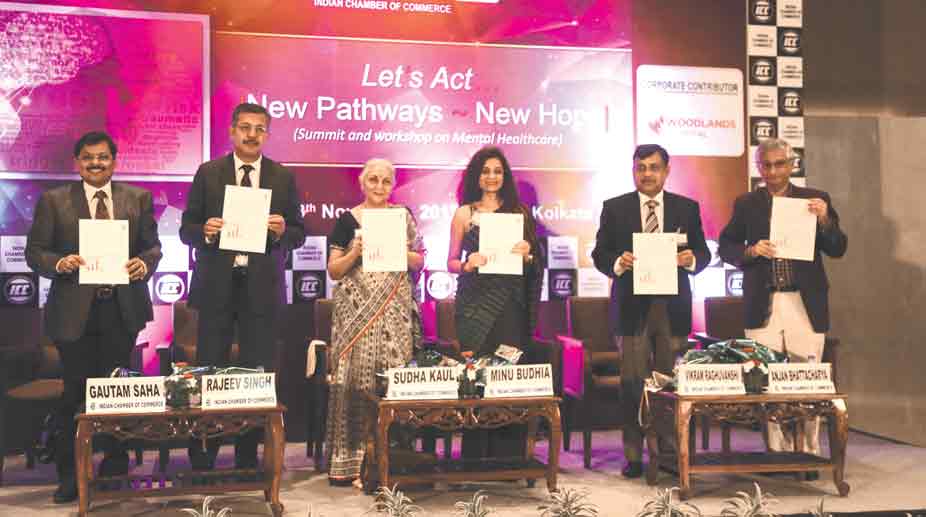Prez calls for empathy, not sympathy for upliftment of specially-abled
She was speaking after presenting the National Awards for the Empowerment of Persons with Disabilities on the occasion of the International Day of Persons with Disabilities.

Sakshi Arora
Advertisement
From understanding mental health to actually creating a more inclusive society, the summit “Let’s act…new pathways-new hope” organised recently by the Indian Chamber of Commerce initiated a much needed dialogue about the mental healthcare system in the country.
Advertisement
The event was graced by stalwarts from the healthcare industry and prominent names from the corporate world highlighted the working of the mental healthcare system, its weakness and the challenges it faces.
Gautam Saha, consultant neuro-psychiatrist and general secretary, Indian Psychiatric Society, explained the present scenario of mental problems and educated the audience about their classification. Emphasising on the need to develop adolescence service and promote healthy use of technology, he pointed out that today India stands second after China in total number of youth suicides and is even expected to bag the first spot by 2020. In order to combat this issue, he stressed on the need for increased home and work place interventions and more efforts for suicide prevention.
Chief guest Sudha Kaul, founder and vice chairperson, Indian Institute of Cerebral Palsy, touched upon the need for not only awareness, but also advocacy of rights of those suffering from disabilities.
Stressing on the necessity to build an inclusive and socially responsible culture, Kaul expressed that humanity can only be empowered if we strive for change. The architecture of an inclusive society should be built on the four Ds, namely, democracy, diversity, development and dialogue. In today’s world, there is a need to not just tolerate diversity, but also celebrate it. Development should ensure that there are opportunities available for all and the society should always encourage healthy debates to accumulate differing opinions and perspectives.
Appreciating the Right to Persons with Disabilities Act 2016 and the Mental Healthcare Act 2017, she expressed her pleasure saying that, “Now we have a legal tool which can be used to protect the rights of people with disabilities.” Drawing attention to the need for improvement in the acts, she nonetheless, appreciated that at least the present acts were a welcome change compared to their predecessors.
The highlight of the event remained in not only understanding but also creating future opportunities for the specially-abled people by providing them with the necessary life skills. Such an initiative is Caring Minds by Minu Budhia, which attempts to provide vocational and life training skills to these people, encouraging them to live life independently and with dignity.
Further stressing on the need for community driven measures, Budhia narrated the story of her personal experience in coping with mental health disorders which led her to create her dream project. She urged the need to instil “social empathy, not sympathy” in society’s outlook towards this section.
Hoping to move towards understanding and not just diagnosing mental health, the conference concluded on a positive note with the examples of many mentally challenged or specially-abled people working in normal jobs as a result of the efforts of institutions like IICP and Caring Minds.
Advertisement